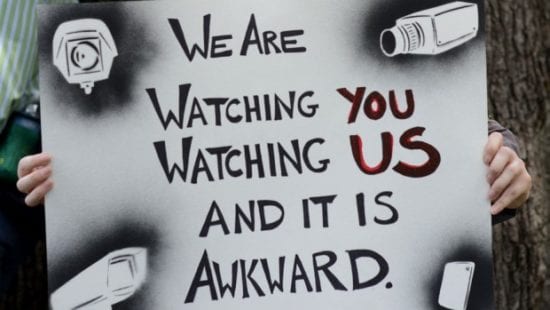In response to the announced report on the Investigatory Powers Bill by David Anderson QC, Jonathan Parker-Bray, Founder and CEO commented below.
Jonathan Parker-Bray, Founder and CEO at Pryvate:
 “It is interesting to see this report on the Investigatory Powers Bill go live, as we have been saying for quite some time that this bill requires further scrutiny. It is also good to see the recommendation that an independent panel of technical experts be set up to advise the intelligence service on how to minimise their impact on individual privacy. However, the greatest issue with mass surveillance from a privacy perspective is that it affects innocent people more than it affects people with something to hide. The Government has repeatedly demonstrated that they would welcome a weakening of encryption – further reducing the protections available to the general population and a disregarding people’s right to have secure private communications online. It has also ignored the position of the UK cyber security industry which has repeatedly said that any moves in this direction will affect its ability to do business on a global stage, and also repeatedly asked for reassurance that the Government will not demand the impossible of them – a weakening of encryption whilst maintaining the highest standards of protection. Yet a weakening of encryption would be necessary for the level of bulk collection the intelligence services are requesting.
“It is interesting to see this report on the Investigatory Powers Bill go live, as we have been saying for quite some time that this bill requires further scrutiny. It is also good to see the recommendation that an independent panel of technical experts be set up to advise the intelligence service on how to minimise their impact on individual privacy. However, the greatest issue with mass surveillance from a privacy perspective is that it affects innocent people more than it affects people with something to hide. The Government has repeatedly demonstrated that they would welcome a weakening of encryption – further reducing the protections available to the general population and a disregarding people’s right to have secure private communications online. It has also ignored the position of the UK cyber security industry which has repeatedly said that any moves in this direction will affect its ability to do business on a global stage, and also repeatedly asked for reassurance that the Government will not demand the impossible of them – a weakening of encryption whilst maintaining the highest standards of protection. Yet a weakening of encryption would be necessary for the level of bulk collection the intelligence services are requesting.
The important thing to underline is that a balance needs to be struck here, the Government does need tools to fight cybercrime and criminals who use mobile devices to communicate in the digital age and normal citizens and businesses have the right to private communications. With the majority of communications happening over phones and connected devices, some steps must be taken to gain information on these interactions. There are viable alternatives to bulk data collection, access to metadata, for example, when coupled with a phone ownership registry could provide the majority of the information police and intelligence agencies seek to access, and crucially shed light on who is talking to who, without invading people’s privacy. This data, however, must be protected and subject to oversight, courts must be engaged to issue a warrant to request the logs of people’s calls and who they speak to, leads must be generated before seeking more information and mass surveillance which puts so many people’s privacy at risk cannot be an acceptable solution.”
The opinions expressed in this post belongs to the individual contributors and do not necessarily reflect the views of Information Security Buzz.



